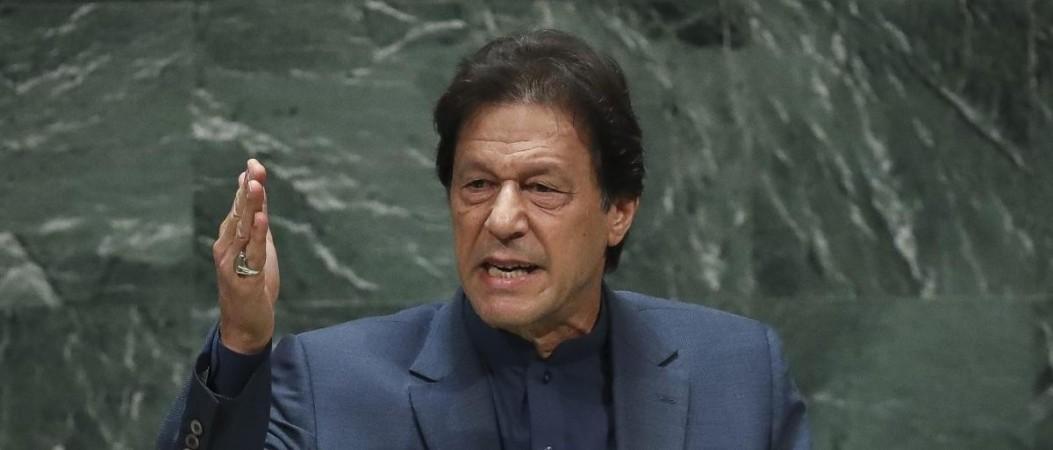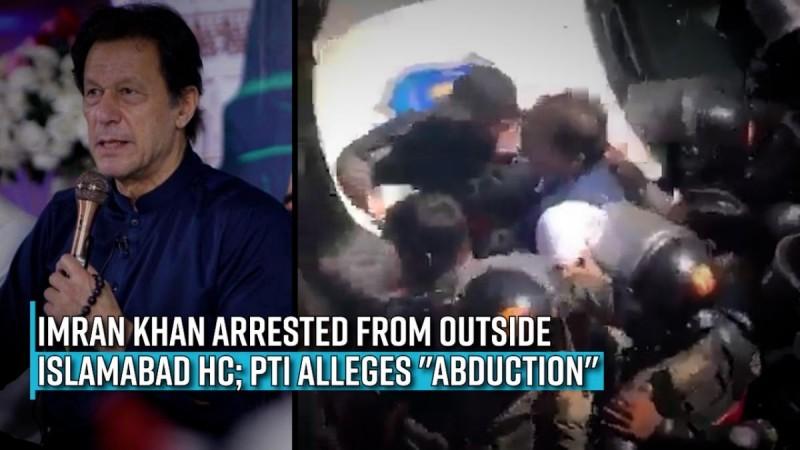The Supreme Court of Pakistan on Thursday termed former Prime Minister and Pakistan Tehreek-e-Insaf (PTI) Chairman Imran Khans arrest in the Al-Qadir Trust case as illegal, media reports said.
The Supreme Court started hearing the Pakistan Tehreek-e-Insaf's (PTI) plea against party Chairman Khan's arrest after the deposed Prime Minister was presented before a three-member bench, Geo News reported.
The court ordered "immediate release" of PTI Chairman Imran Khan after terming his arrest as unlawful, media reports said. The directives were issued by the Chief Justice of Pakistan (CJP), Umar Ata Bandial, as the court resumed hearing the former premier's plea against his arrest.
The CJP remarked that the country was on fire after the arrest of the PTI Chairman and the court wants peace to prevail in the country, Samaa TV reported.
The court had directed the authorities to present the PTI chief before the court. Accordingly, Khan was brought to the court in a convoy of 15 vehicles, Geo News reported.

The directive to present Khan before the court came after Chief Justice of Pakistan (CJP), Umar Ata Bandial, termed the PTI leader's arrest from the premises of Islamabad High Court (IHC) as a mighty disgrace to the country's judicial establishment.
The CJP passed the remark while heading a three-member bench hearing PTI's petition challenging Khan's arrest. Apart from the CJP, the bench also included Justice Athar Minallah and Justice Muhammad Ali Mazhar.
At the outset of the hearing, the former premier's lawyer, Hamid Khan, informed the court that Khan had gone to the IHC in order to secure an extension of his interim bail. When the PTI chief was getting his verification done, Rangers personnel broke into the room, Geo News reported.

"The Rangers misbehaved with Imran Khan and arrested him," he added.
At this, CJP Bandial inquired about the case in which Khan was seeking bail extension.
Justice Minallah inquired if a plea can be filed before the biometric verification is conducted.
At this, the lawyer said that Khan went for biometric verification because a plea cannot be filed before that.
"Why did the NAB (National Accountability Bureau) take the law in its hand? It would have been better for NAB to seek permission from the IHC registrar," Justice Minallah said, Geo News reported.
(With inputs from IANS)

















